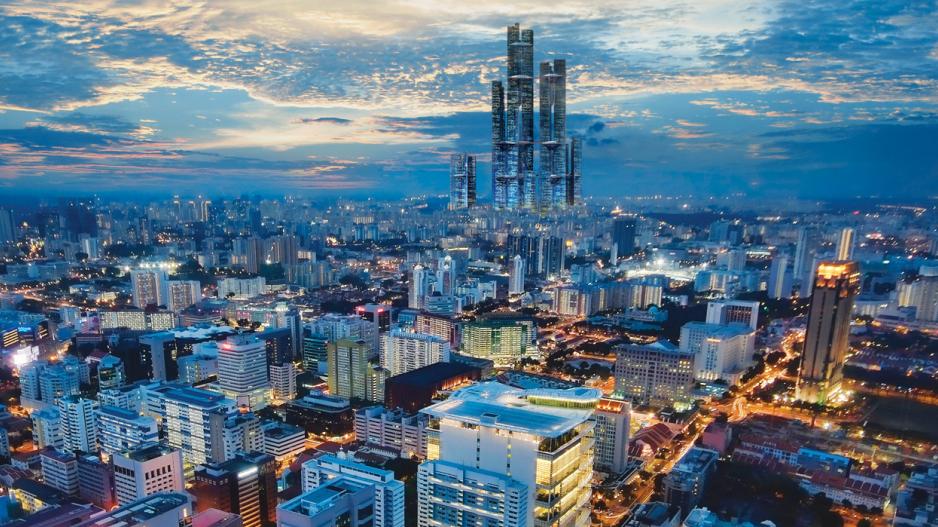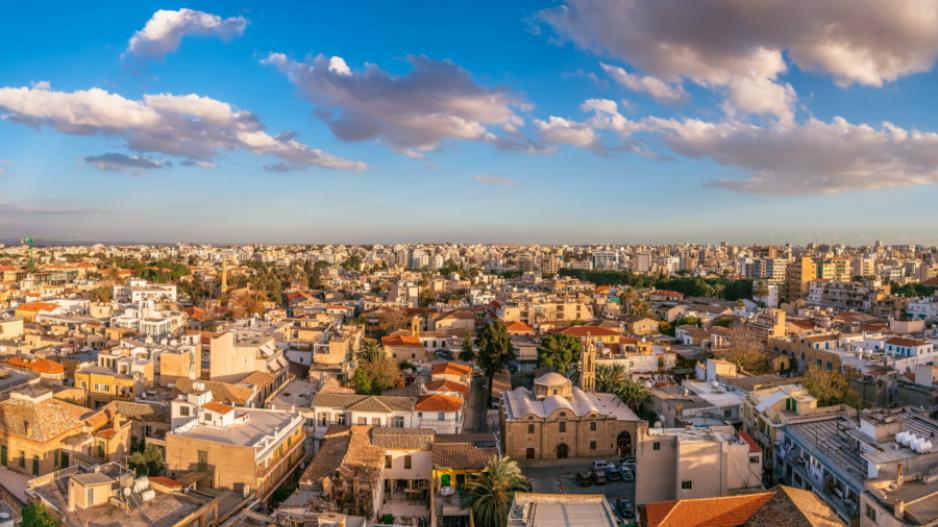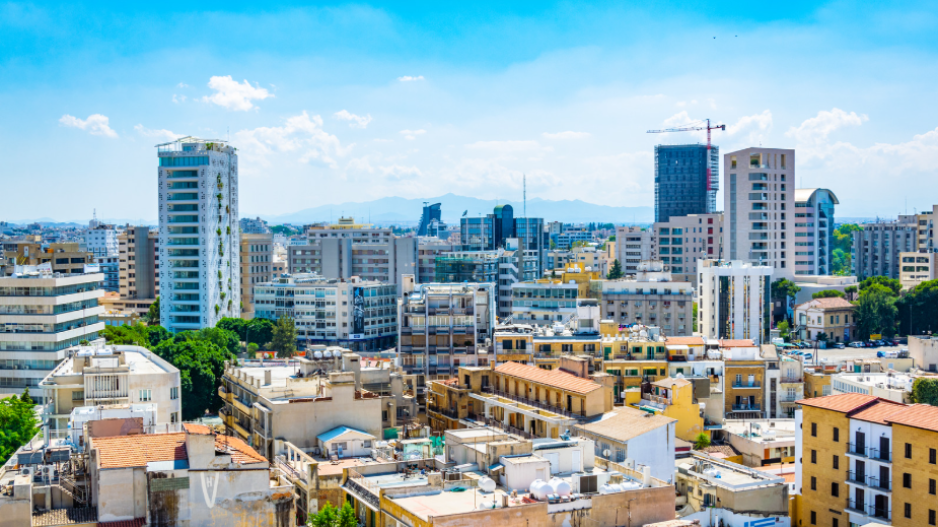From Co-Living to Vertical Cities
Shaping the Future of Urban Real Estate in Cyprus
Urbanization is a global phenomenon, and Cyprus is no stranger to its impact. With an expanding population and an ever-growing demand for housing, urban spaces in Cyprus are undergoing a transformation. As cities like Nicosia, Limassol, and Larnaca continue to experience significant growth, the real estate sector in Cyprus is evolving to meet the needs of residents, tourists, and investors alike. This transformation is driven by new housing concepts such as co-living, smart buildings, and vertical cities. These innovative solutions promise to provide sustainable, efficient, and community-oriented living spaces.
Urbanization in Cyprus is being shaped by several factors that push for a change in the way cities are designed and developed. The population in urban areas is rising steadily, as both locals and expatriates flock to cities in search of better economic opportunities, higher living standards, and modern amenities. The island’s attractiveness as a tourist destination has also sparked an influx of investments into real estate, particularly in coastal areas. The boom in both tourism and international investment has contributed to increasing demand for housing, particularly in prime locations near the beach and in urban centers.
However, the rapid pace of urbanization presents challenges. Limited land availability is a pressing issue, especially in the coastal regions of Cyprus, which have traditionally been the focus for residential and commercial development. As demand grows, there is increasing pressure on available land, pushing developers to seek out innovative solutions to ensure that urban spaces can meet the needs of the population.
One of the most notable shifts in the Cyprus real estate scene is the rise of co-living spaces. This concept, which offers a blend of private living areas with shared amenities, is gaining popularity among younger generations, particularly digital nomads, students, and young professionals. The affordability and sense of community that co-living offers make it an attractive option for those seeking flexible living arrangements.
Co-living developments are increasingly found in major urban centers such as Limassol, Larnaca, and Nicosia, areas that are attracting both local and international talent. Among them are To Hani Coliving, and Sangha Coliving. These spaces often feature shared kitchens, lounges, and coworking areas, fostering a collaborative environment that appeals to those who value connection and community. Furthermore, co-living models typically offer flexible lease terms, allowing residents to live in these spaces for varying lengths of time, accommodating a transient population. Given the rise of remote work, co-living could further flourish in Cyprus, especially as the island positions itself as an emerging hub for digital nomads.

As urban space in Cyprus becomes more scarce, vertical cities are gaining traction as a solution to maximize land use and create sustainable living environments. These high-rise developments integrate residential, commercial, and recreational spaces in one vertical structure, allowing cities to grow upward instead of outward. Limassol and Nicosia have already seen luxury high-rise developments, with more in the pipeline.
Vertical cities offer several benefits, including the efficient use of land by building upward. This type of urban design reduces the need for sprawling developments, preserving green spaces and minimizing urban sprawl. Furthermore, these high-rise developments are often equipped with sustainable features, such as energy-efficient systems, solar panels, and rainwater harvesting mechanisms, contributing to a greener future for Cyprus. In addition to these environmental benefits, vertical cities are designed to provide residents with a "city within a city" experience, with shops, offices, restaurants, and leisure facilities all contained within the same structure. This level of convenience makes vertical cities an attractive living option for those seeking modern, urban lifestyles with minimal commuting.
Technology is playing a transformative role in shaping the future of real estate. In Cyprus, the integration of smart technologies into buildings is becoming increasingly popular. From intelligent lighting systems to energy-efficient designs, smart buildings are set to become the norm in the coming years. By incorporating the Internet of Things (IoT) and automation into building systems, real estate developers in Cyprus can offer more energy-efficient, secure, and user-friendly environments.
In Cyprus, smart homes are being equipped with systems that allow residents to control everything from their heating and lighting to security systems using mobile apps or voice commands. High-tech security features such as facial recognition and remote monitoring are also becoming standard in many buildings. Additionally, the use of digital platforms for property management and maintenance is streamlining everyday tasks, making urban living more convenient for residents.
Despite the promising growth of co-living spaces, vertical cities, and smart buildings, several challenges remain for urban development in Cyprus. One of the primary hurdles is the country’s regulatory framework. Existing zoning laws and building codes may not be equipped to support innovative housing solutions. In particular, the rapid rise of vertical cities will require significant adjustments to accommodate such high-density developments.
Additionally, infrastructure development is another challenge. Ensuring that urban areas can support increased population density requires improving transportation networks, utilities, and public services to match the growth in residents. Public transportation, for example, needs to be enhanced to offer efficient and sustainable mobility options to city dwellers.
Another issue that could hinder urban development is affordability. The influx of luxury developments in Cyprus has created concerns about whether local residents can afford to live in cities as prices continue to rise. Balancing the demand for upscale living spaces with the need for affordable housing will be crucial in ensuring that urbanization benefits all sectors of the population.
Finally, there is a very intricate balance that needs to be found between preserving historical centers and ushering in a new era of urban development. While it is important to continue moving toward a more sustainable future through smart innovations, it is just as important to make sure not to replace iconic landmarks with high-rise buildings altogether. Maintaining this delicate balance is yet another challenge in these efforts.

Despite these challenges, Cyprus stands at the forefront of an exciting opportunity to lead in sustainable and innovative urban development. The island can capitalize on its reputation as a tourist and investment hub by creating developments that cater to the growing demand for eco-friendly, efficient living spaces. The rise of digital nomads and retirees seeking vibrant, community-driven environments presents new markets for developers to explore.
Co-living spaces, vertical cities, and smart buildings are not just trends—they are shaping the future of urban living in Cyprus. By embracing these changes, the country can enhance the quality of life for its residents while making a positive impact on the environment. The goal for Cyprus will be to blend the old with the new, preserving its unique cultural heritage while developing cutting-edge urban environments.






